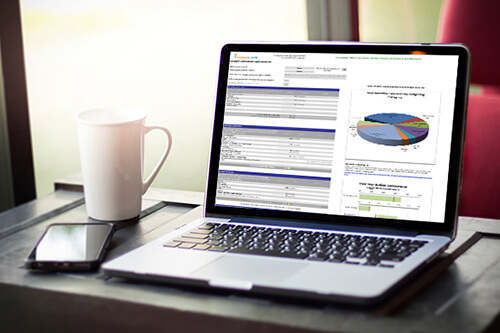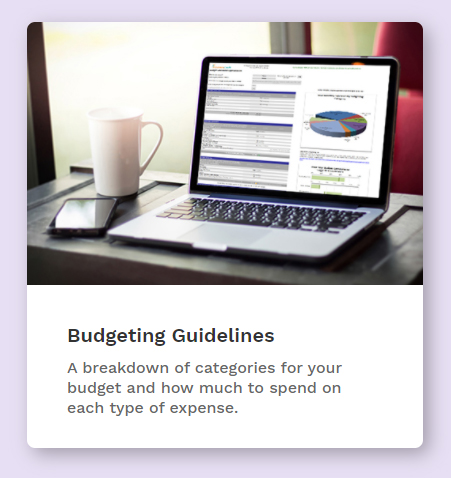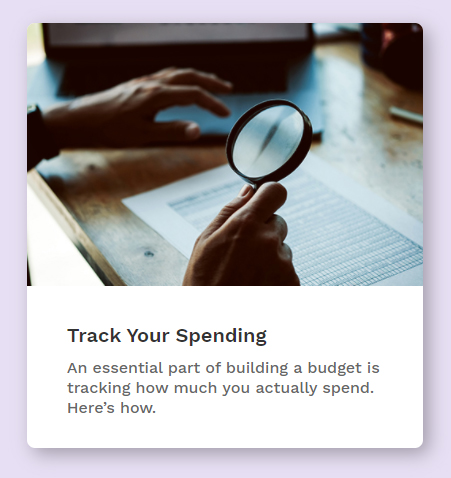Don’t Just Cure Your Financial Hangover, Avoid It Altogether
Post-holiday debt can be avoided with healthy financial habits
By Monika Ritchie
Like many of us around this time of year, you might remember, or still be experiencing, the dreaded financial holiday hangover. Its symptoms can include a sick feeling in your stomach when the latest bills come in, a stress-headache when looking over your recent bank statements, or cold chills when your phone rings with a lender asking for payment. With the increased expenses that came with the holiday season, on top of the already-challenging economic conditions of the past year, it’s unsurprising that so many Canadians now find themselves with a headache-inducing amount of debt. This time, instead of sharing some ‘cures’ to ease your financial holiday hangover, we’ve got some financial wellness habits that you can practice all year long.
How to Manage Holiday Expenses While Paying Off Debt
Try a Credit Card ‘Cleanse’ to Break Spending Habits
Dietary cleanses are said to be useful for improving your body’s overall health by clearing out toxic substances and replacing them with healthy ones. Similarly, a credit card ‘cleanse’ can help you replace damaging habits with ways to use a credit card but not end up in debt, thereby improving your financial health for the year ahead. To help eliminate the pain of your credit card bills as quickly as possible, follow these tips for your credit card cleanse:
- Keep your cards out of reach for a while. Clear out your wallet, purse, car, and any other places you may keep credit cards handy. You can’t use them if you don’t have them.
- While you’re not using the card(s), continue to pay the bill(s) every month. Whenever possible, pay more than the minimum amount. You’ll be paying down more of the principal rather than just the interest and you’ll see a noticeable drop in your balance.
- Don’t forget to include a ‘digital’ cleanse as well. If you have your credit card credentials saved on your phone, laptop, tablet, or any other device, or use an app like Google Pay, be sure to remove them to help avoid impulse shopping and overspending. Be sure to delete them from the websites and apps of your favourite retailers or merchants as well.
Take a Rest From Social Media to Prevent FOMO Spending
Another healthy financial habit to help avoid the post-holiday blues is to reduce or even eliminate social media usage (especially on your cell phone) to improve your mental health. The rather ominous term of doomscrolling has been coined to describe the seemingly endless cycle of consumption and sharing of content on social media – particularly the negative kind.
Scrolling endlessly through artificially enhanced images of sparkly events, pricey gifts, and picture-perfect vacations can make you feel unsatisfied with your own life. The fear of missing out (FOMO) and trying to keep up with the Joneses, can lead to more overspending, stress, and debt. Also, the sheer number of targeted ads and ease of making purchases right from your social media page can make it all too easy to overindulge with needless spending. Taking a break from the stress of scrolling can be helpful for both your mental and your financial well-being.
Is Social Media Increasing Your Credit Card Debt?
Build Up Your Emergency Savings to Improve Your Financial Resilience
Think of your emergency savings as your financial ‘immunity boosters,’ there to strengthen your resilience during challenging times. Anyone who’s ever been in debt before knows that it can feel a lot like being under the weather. The headache and unsettled stomach. The feelings of exhaustion, anxiety, or even sadness. These ‘symptoms’ of debt are difficult enough to manage on their own, but they can also have a domino effect on other areas of your life. For example, the lack of energy and hopelessness from carrying your debt load can leave you unmotivated to exercise or make a meal plan, further negatively impacting your overall health.
Dedicating even a small amount of your earnings to build up your savings and emergency fund will go a long way to strengthening your overall financial health. In case of an emergency or unexpected expense, your emergency fund will also prevent you from falling back into the credit trap to make ends meet. As your financial situation improves and you’re able to increase the amount you add to your savings, you’ll be making your financial health that much stronger.
Six Smart Money Moves to Stay Financially Healthy
Focus on ‘Fun’ Instead of ‘Funds’ to Manage Stress
Trying to separate activities that cost money from activities that are fun, isn’t always easy. After all, doesn’t everything cost money these days? Try reframing your previously costly outings into something that’s “fun and frugal.” On the weekend, skip the movies and restaurant route. Instead, pack up some goodies from home and take your family out for a picnic at a local park – for rainy days, make it an indoor picnic and a favourite movie at home. If your entertainment of choice happens to be reading, find ways to cut costs there as well. Put a ban on spending money on books. Instead, visit the library, swap with friends, and take advantage of free or low-cost used books.
Try to take the pressure off of yourself to spend money to have fun. Enjoy the stress-free experience of getting outside, participating in a favourite activity, and indulging in an after-dinner treat, all without the stress of getting further into debt.
16 Affordable & Fun Staycation Ideas for You and Your Wallet
Prioritize Your Financial Health, Reach Out for Help With Your Money
The financial challenges of the last few months have left many people struggling with their physical, mental, and financial health. After you’ve taken care of your physical and mental well-being, you can do the same with your money. Whether you’re trying to ‘cure’ yourself of debt or you just want to strengthen your financial fortitude, our credit counsellors and educators can help you meet your goals. Reach out to our financial experts to set yourself up for a financially healthy and productive year.
Last Updated on April 9, 2025






